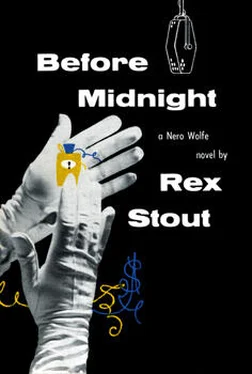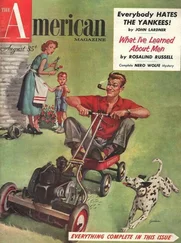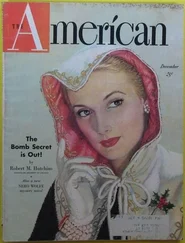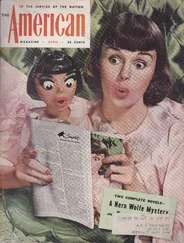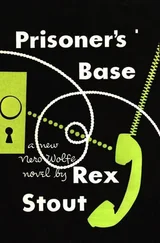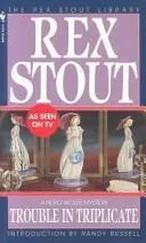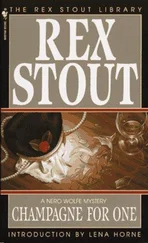Back in the office, I stood and looked down at Wolfe. “I suppose,” I observed, “it doesn’t matter who struck the spark as long as it caught.”
“Yes. Get Mr. Cramer.”
I sat at my desk and dialed. It was a bad time of day to get Cramer ordinarily, but when something big was stirring, or refusing to stir, he sometimes ate at his desk instead of going home for what he called supper. That was one of the times. From the way he growled at me, it was very much one of the times.
Wolfe took it. “Mr. Cramer? I thought you might be interested in a meeting at my office this evening. We’re going to discuss the Dahlmann case. It will—”
“Who’s going to discuss it?”
“Everyone concerned — that is, everyone I know about. It will of course be confined to the theft of the wallet, since that’s what I’m investigating, but it will inevitably touch upon points that affect you, so I’m inviting you to come — as an observer.”
Silence. Cramer could have been chewing a bite of a corned beef sandwich, or he could have been chewing what he had heard.
“What have you got?” he demanded.
“For myself, a reasonable expectation. For you, the possibility of a suitable disclosure. Have I ever wasted your time on frivolity?”
“No. Not on frivolity. There’s no use asking you on the phone.... Stebbins will be there in ten minutes.”
“No, sir. Nor you. I need a little time to arrange the inside of my head, and my dinner will be ready shortly. The meeting will be at nine o’clock.”
“I’ll bring Stebbins with me.”
“By all means. Do so.”
We hung up.
“You know darned well,” I said, “that Purley will bring handcuffs, and he hates to take them back empty—”
I stopped because he was leaning back and closing his eyes, and his lips were starting to move, pushing out and then in, out and in.... He was working at last. I went across the hall for two more chairs.
If a successful party is one where everybody comes, there was no question about that one. In fact, some came too early. Gertrude Frazee showed up at eight-thirty-five, when Wolfe and I were still in the dining room, and I was having coffee in the office with her when Philip Younger arrived, and a minute later Talbott Heery. Patrick O’Garro and Oliver Buff came together, and almost on their heels Professor Harold Rollins. When Inspector Cramer and Sergeant Stebbins got there it was still ten minutes short of nine. They wanted to see Wolfe immediately, of course, and I took them to the dining room and shut them in there with him. Back at the front door, I opened it for Vernon Assa, who was still in no frame of mind to thank anybody for anything, and then for Susan Tescher, of Clock magazine. I had been sort of hoping to see Mr. Tite himself, but all she had along was Mr. Hibbard, the tall and skinny one. It was nine on the dot when Mrs. Wheelock appeared, and not more than thirty seconds later here came Rudolph Hansen. Not only did everybody come, they all beat the bell except Hansen, and he just shaved it.
I went to glance in at the office door and saw that Fritz had things under control at the refreshment table. Evidently they had all been thirsty, or else they didn’t want to talk and were drinking instead. Pleased that the party was starting well, I crossed to the dining room to tell Wolfe we had a full house and were set for his entrance, but, entering, I shut the door and stood. Cramer, sitting with his big rough fist tapping the table, was reading Wolfe the riot act, with Purley standing behind his shoulder looking satisfied. I approached. What seemed to be biting Cramer was that he did not intend to let Wolfe call a meeting of murder suspects and expect him, Cramer, to sit and take it in like a goddam stenographer (Cramer’s words, not mine; I have known at least three stenographers who were absolutely — anyway, I have known stenographers).
I had heard Cramer lose that argument with Wolfe some twenty times. What he wanted was the moon. He wanted, first, to know in advance exactly what Wolfe was going to say, which was ridiculous because most of the time Wolfe didn’t know himself. Second, he wanted it understood that he would be free to take over at any point, bound by no commitment, whereas Wolfe demanded a pledge that the proceedings would be left to him short of extreme provocation, such as gunplay or hair pulling. Since it was a cinch that Cramer wouldn’t have been there at all if he hadn’t thought Wolfe had something he badly needed, he might as well have given up on that one for good, but he never did. All he accomplished that Monday evening was holding up the start of the meeting by a quarter of an hour. I cut in on the squabble to announce that the audience was ready and waiting, and then went to the office.
A few details needed attention. Miss Frazee had copped the red leather chair, which was reserved for Inspector Cramer, and I had to talk her into moving. Buff and Hansen were in a huddle at the wall end of the couch, where Wolfe would have to look through me to see them, and I got them to transfer to chairs, Buff stopping on the way for a refill of his highball glass. Hibbard was seated beside Miss Tescher in the front row, and when I asked him to move to the rear I thought he was going to speak at last, but he controlled it and went without a word. Vernon Assa bothered me. He was standing backed up against the far wall, staring straight ahead, an Old-Fashioned glass in his hand, presumably holding Pernod. When I went to him he turned his eyes on me and I didn’t like them. He could have been high, too high, but when I suggested that he come and take a chair he said in a perfectly good voice that he was all right where he was. As I turned to leave him Wolfe and Cramer and Stebbins entered.
Wolfe walked across to his desk. Cramer stood a moment taking in the crowd and then went to the red leather chair and sat. I had put a chair for Purley against the wall, so he would be facing the audience, and he didn’t need to be told it was his. The talking had stopped, and all eyes went to Wolfe as he rested his clasped hands on the desk and moved his head from left to right and back again.
He took a breath. “Ladies and gentlemen. I must first explain the presence of Inspector Cramer of the New York Police Department. He is here by invitation, not to—”
Two sounds came almost simultaneously from the rear of the room — first from a throat, part gurgle and part scream, and then a bang as something hit the floor. Everybody jerked around by reflex, so we all saw Vernon Assa stagger toward us with the fingers of both hands clutching at his mouth, and then he went down. By the time he touched the floor I was there, but Purley Stebbins was right behind me, and Cramer behind him, so I dived back to my desk for the phone and dialed Doc Vollmer’s number. At the second buzz he answered and I told him to come on the jump. As I hung up Cramer called to me to get a doctor and I told him I had one. He stood up, saw Susan Tescher and Hibbard crossing the sill into the hall, and sang out, “Get back in here!” He came to me. “I’ll call downtown. Put ’em all in the dining room and stay there with ’em. Understand? No gags.” He was at the phone.
I looked around. They were behaving pretty well, except Susan Tescher and her silent partner, who had apparently had the notion of fading. There had been no shrieks. Wolfe was sitting straight, his lips pressed tight, his eyes narrowed to slits. He didn’t meet my glance. O’Garro and Heery and Hansen had gone to the prostrate Assa, but Purley, kneeling there, had ordered them back. I went to the doorway to the hall and turned.
“Everybody this way,” I said. No one moved. “I’d rather not yell,” I said, “because the inspector’s phoning. He wants you out of this room, and four of the men will please bring chairs.”
Читать дальше
